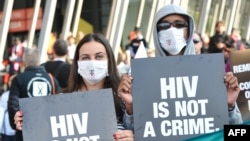To hear scientists talk about it, it’s nothing short of a wonder drug.
The drug is sofosbuvir, called Solvadi by its manufacturer, and its effectiveness in treating hepatitis C is so pronounced that the U.S. regulators designated it “breakthrough therapy” when they approved it for U.S. markets last year.
The catch is that it doesn’t come cheap: a single pill costs $1,000, meaning the 12-week daily dose prescribed for most patients will cost $84,000. That has brought howls of protests from activists accusing California-based Gilead Sciences of charging extortionate prices.
The dispute highlights the continuing conundrum afflicting medical research and spiraling health care costs, not only in the United States and elsewhere. What’s an appropriate price to charge for life-changing, or life-saving, drug therapies and who determines it?
Pharmaceutical companies argue they spend billions of dollars to research, discover and test such breakthrough drugs, so the production costs account for just a fraction of the company’s overall investment.
Activists-- some of whom traveled to the International AIDS conference in Melbourne, Australia, to protest Gilead’s decisions-- say drug companies gouge customers and patients with arbitrary pricing that varies widely from place to place.
“We want Gilead to explain, number one, on what they’re basing their price, whether it’s $84,000 in Europe and the United States, or even $2,000 in another country,” said Karyn Kaplan, who directs international Hepatitis and HIV policy and advocacy for the New York-based organization, the Treatment Action Group. “We want to understand what is their price based on and why won’t they give a price that will be affordable to all who need it.”
Gregg Alton, executive vice president for corporate and medical affairs for Gilead Sciences, said the drug is priced differently around the world. In Egypt, for example, which has a high rate of hepatitis C, the drug will cost just $300 per month.
Alton also noted that the company will give generic licensing to several factories, which will push down the price in the future.
“It is a fantastic drug. It’s really changing the landscape of Hepatitis C and the ability to treat hepatitis C, from a largely untreatable disease to one we can cure with a more than 90 percent rate,” he told VOA.
A study by researchers at the University of Liverpool concluded that the Solvadi pill can be made for a few U.S. cents, and that even at $1 a pill, Gilead will make a healthy profit.
Alton said in considering the drug’s price, one should take into account that a patient who is cured of hepatitis C is free not only from the disease, but also the financial burden of future treatments.
“So actually on a cost basis, if you just look at pure cost, it is actually less expensive than treating HIV, because HIV being chronic, if you actually put the cost of actually treating for life, it turns out to be more,” Alton said. “And, again, the other thing is that we actually hope the cost comes down, that’s the purpose of the generic licensing.”
As many as 150 million people around the world have the chronic version of this liver disease that is spread, like HIV, through blood or sexual contact, according to the World Health Organization. For that reason, many HIV patients are at higher risk for contracting hepatitis C. Symptoms tend to surface late in the disease’s path, and can lead to liver cancer.
As a whole, the hepatitis family of viruses kills about 1 million people per year, according to the WHO.
For now, Gilead is raking in profits. Earlier this week, the company announced second-quarter sales of Sovaldi at a whopping $3.5 billion. That puts this little yellow pill on track to be one of the pharmaceutical industry’s biggest all-time hits, with sales expected to reach those of cholesterol-lowering drug Lipitor.
“We are not at all against Gilead making money. They are a corporation, they are a for-profit entity. So we all recognize and agree that originator companies make investments, and that they should be appropriately rewarded,” Kaplan said. “However, what that appropriate reward is and the lack of transparency in how pharmaceutical originators, pharmaceutical companies come up with that price, is not in touch with reality.”




